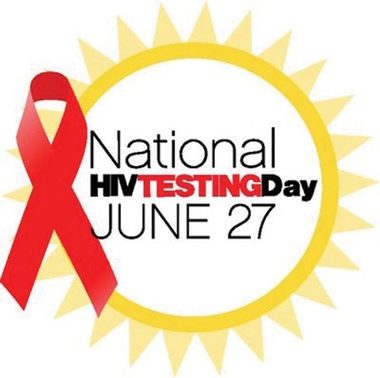National HIV Testing Day: Take the test

By Mary Turner
HIV/AIDS Medical Columnist
There are many reasons why you might be reluctant to have your blood drawn for testing. Needles and blood do, in fact, make some of you squeamish, and having blood drawn isn’t always a pleasant experience.
June 27 marks the 23rd annual National HIV Testing Day. Get tested and know your status.
With the availability of home HIV testing kits, some of you may prefer to test in the privacy of your own homes. The downside to using these kits exclusively is that they test for HIV antibodies, which typically takes between three weeks and three months for those to show up.
In the world of HIV infection, that’s a lot of time to allow the virus to take hold of your body. Knowing that you are HIV+ means that you can immediately begin a treatment regimen to keep yourself healthy.
Being HIV+ is no longer a death sentence because those who adhere to their treatment program can keep their viral load suppressed, and can live long, productive, happy lives.
Knowing you are HIV- means that you breathe a little easier and make any lifestyle changes that might be necessary to keep your risk of infection as low as possible.
The Centers for Disease Control (CDC) recommend that everyone between the ages of 13 and 64 should have an HIV test at least once.
If you use needles to inject drugs, share personal care items such as razors or toothbrushes, and/or engage in unprotected sex, you should test more often.
The CDC estimates about one in seven (14.28 percent) of people infected with HIV do not know they have it. Not knowing your status will potentially put other people at risk who engage in behaviors where blood or other body fluids might get shared.
According to the National Institutes of Health (NIH) in a June 2017 study, there remains a profound need for innovative and effective interventions designed for young men who have sex with men (YMSM) in general.
Further disparities are present among racial and ethnic minority groups of YMSM, YMSM living in rural communities, and low-income YMSM, particularly, to prevent HIV and improve health outcomes in the United States.
Some professions put you at greater risk through needle sticks and other exposure. If you are sexually assaulted, you have a greater risk of infection.
Knowledge is power. In fact, it can be a superpower. Make it your superpower and use it for the greater good. Get tested and know your status.
There are free testing centers in every major city and through most State Departments of Health.
Copyright The Gayly 6/27/2018 @ 11:21 a.m. CST.





